As someone who also gets mad at a lot of these, the responses were incredibly validating. So, here are some of the best:
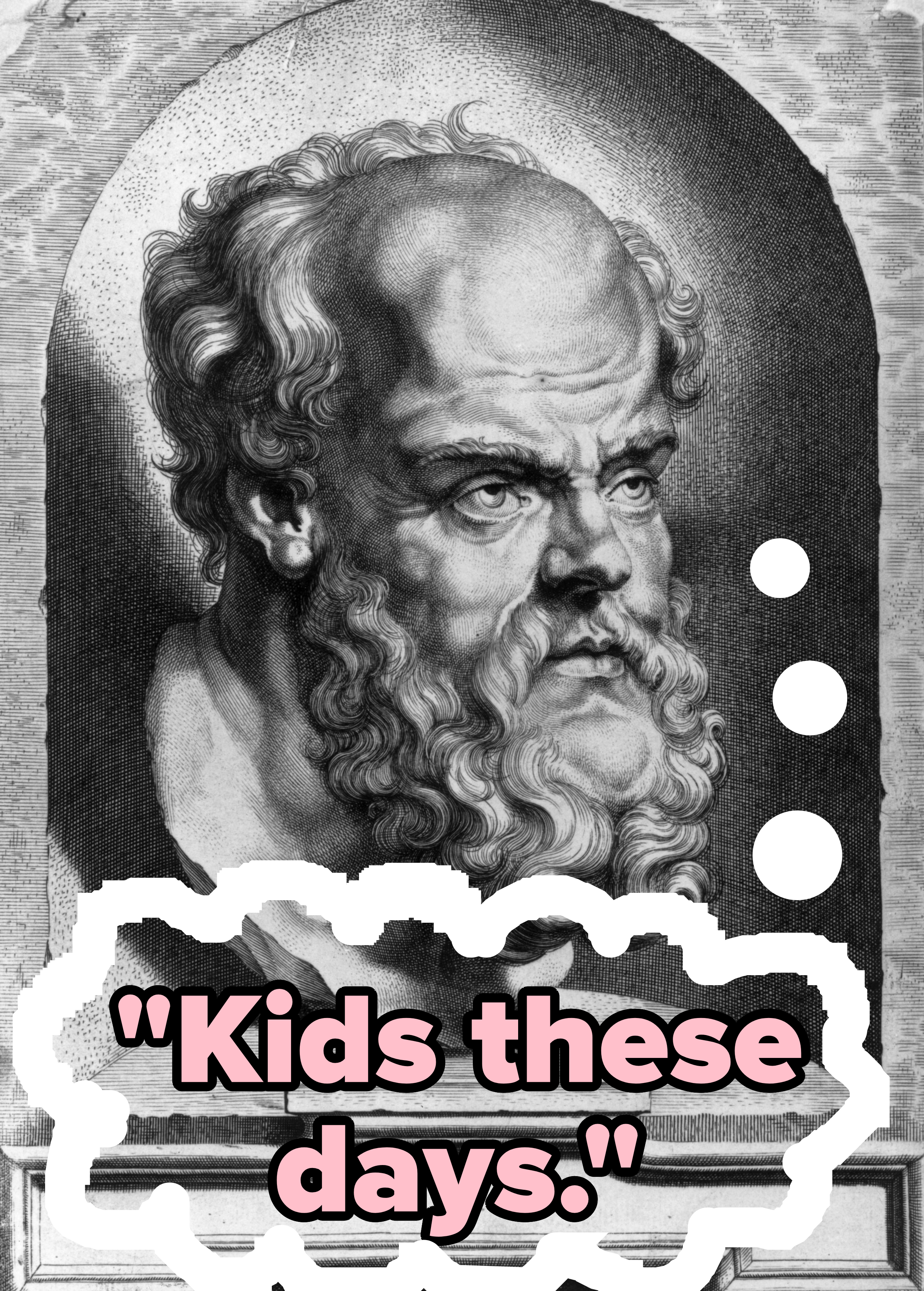



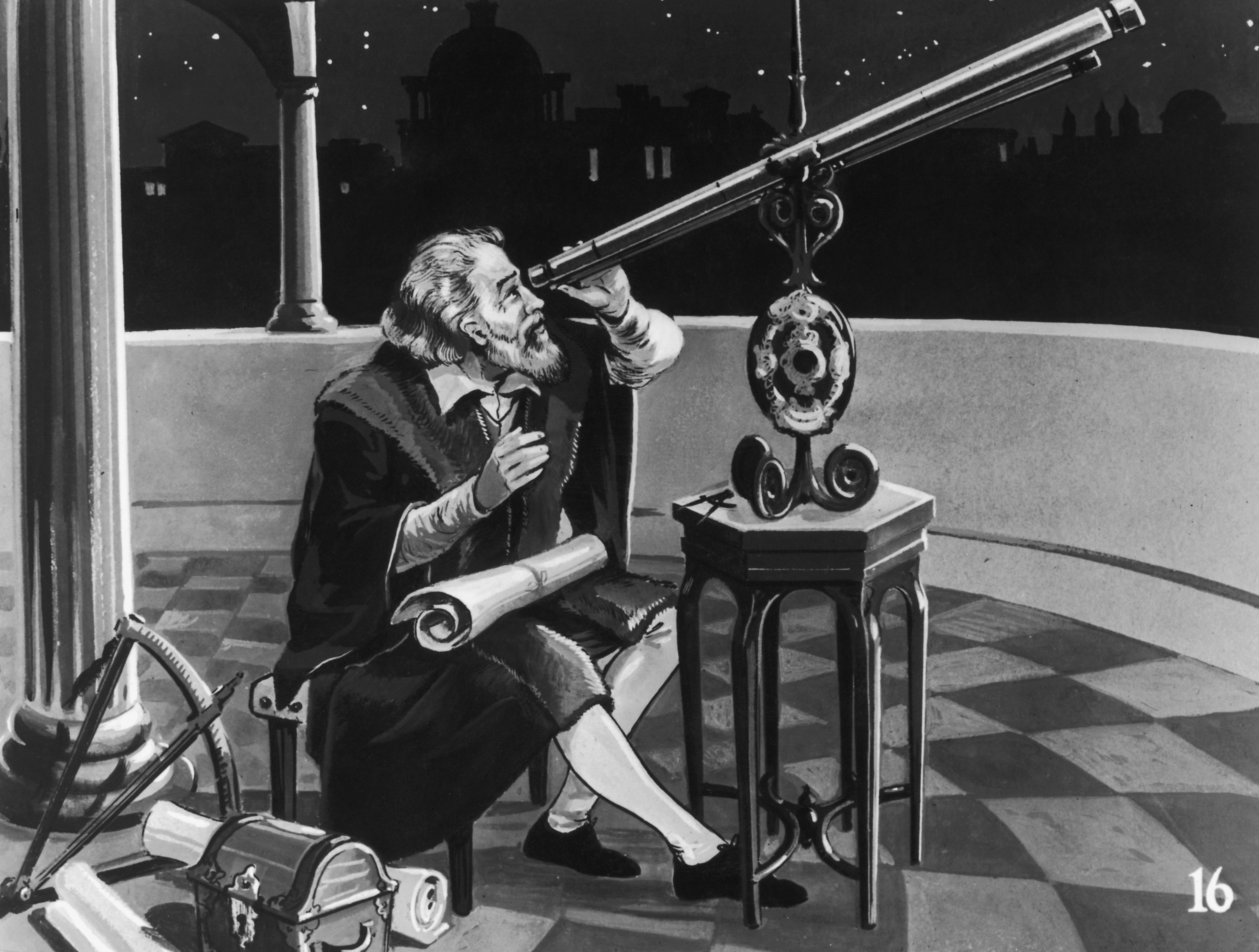
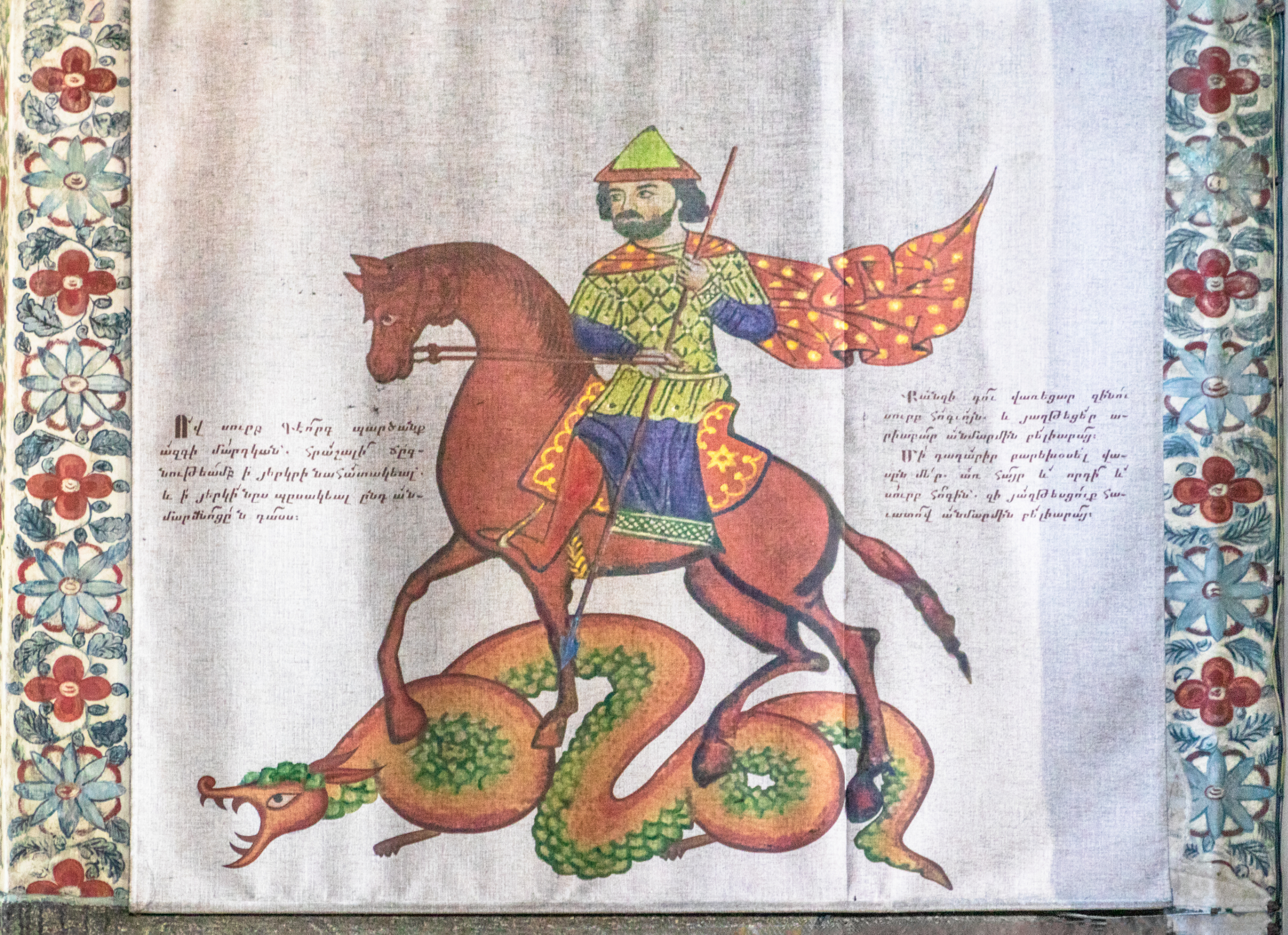


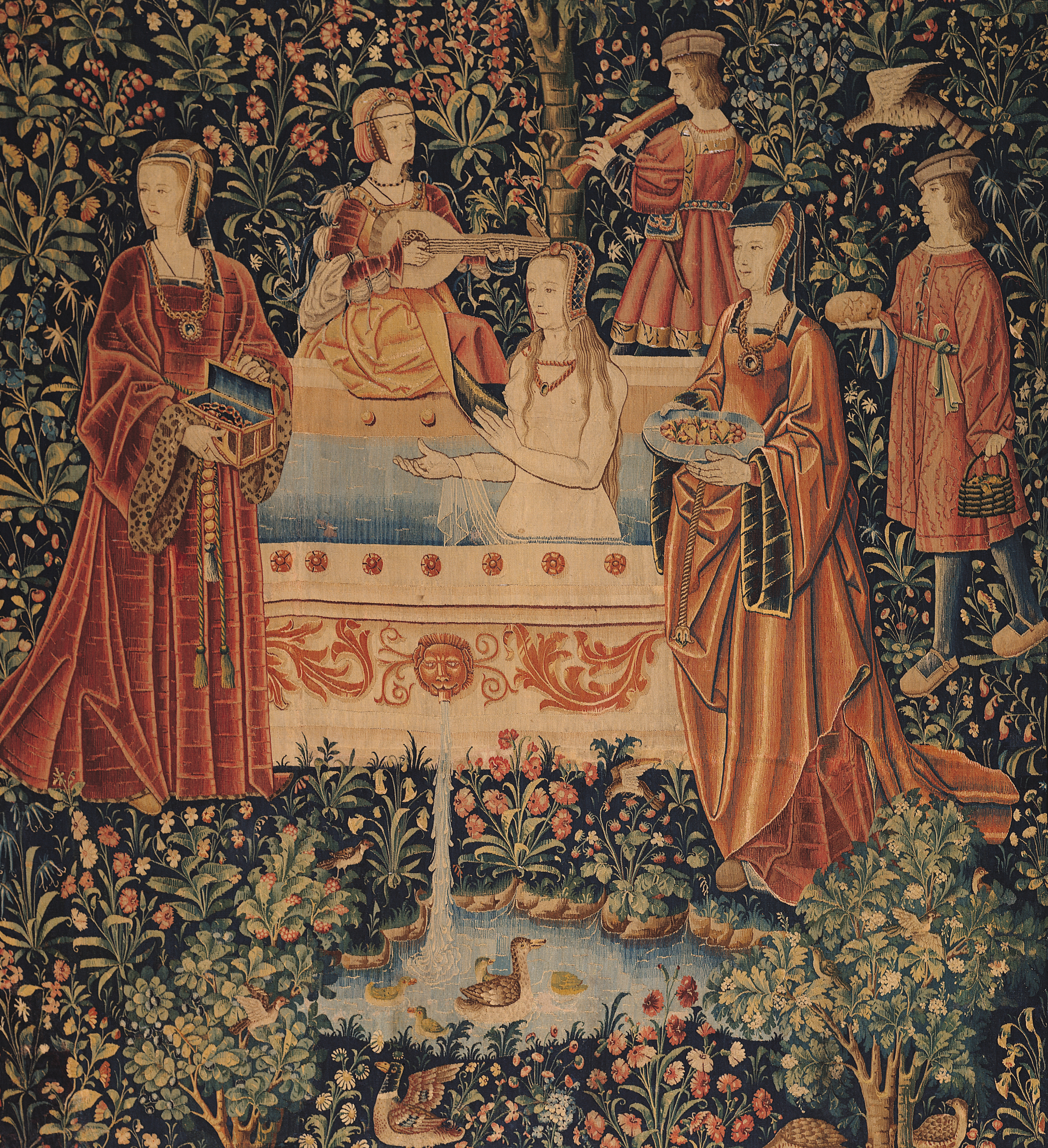


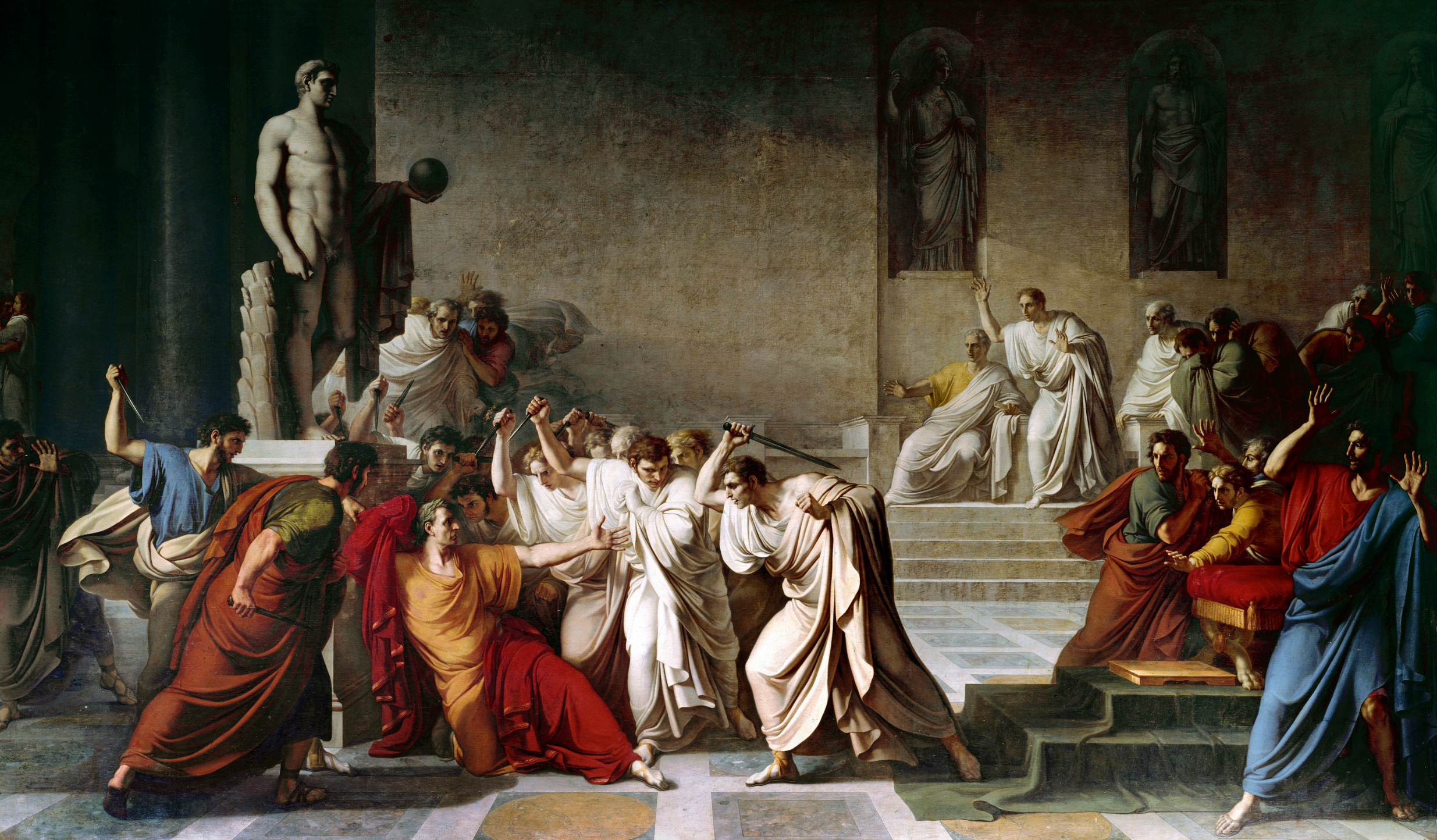


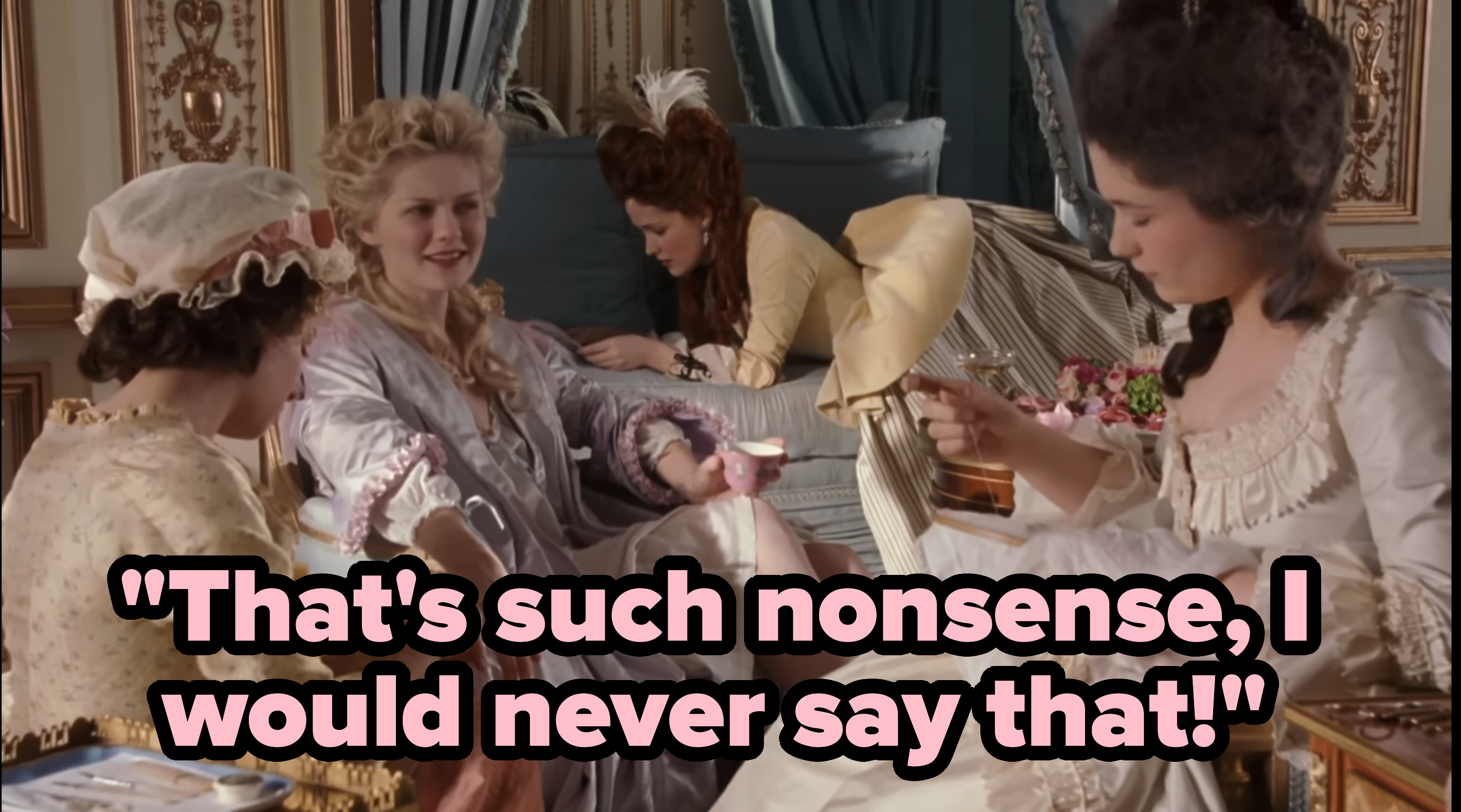
Okay, I admit, some are more niche than others.
Tell me about a common historical myth that makes your hackles rise. I don't mean actual disinformation like Holocaust denial; I mean stuff like "Napoleon was short!"
— Amy Colleen (@sewistwrites) December 7, 2023
For me it's probably "corsets were torture devices for the rich" and "romantic love is a very modern concept."
That the Irish famine was about potatoes https://t.co/CU40eOBH0d
— lissa (@melissabreenx) December 10, 2023
OH! How could I forget!? That "Kids These Days" are lazy/rude/mischievous compared to older generations. Socrates was complaining about how books were rotting kids' brains and they weren't respecting parents in the BCE!!
— ♿️Maestro Fluger(he/him) 🇧🇴+🇺🇲 (@nfluger) December 7, 2023
But actually, the quote is not Socrates'. Rather, it was written by a young man named Kenneth Freeman, a student at Cambridge, and published in 1907 in an essay (over 300 pages long) entitled Schools of Hellas: An Essay on the Practice and Theory of Greek Education. Mr. Freeman was writing about Hellenic education and attitudes toward the youth, but was not quoting Socrates in the passage in question.
If you want to read some bitchy, contemporary stuff about the youth and Socrates, I recommend Aristophanes' Clouds!

"Everybody died at 30" ... my dudes, I beg of you to understand averages and childhood mortality.
— Maggie Koerth (@maggiekb1) December 7, 2023
"Everbody was so much healthier before modern food" ... thinner isn't the same as healthier and a bunch of those old timey diseases were just sparkling vitamin deficiency.
That people in Columbus’ time believed the earth was flat. It was commonly known to be round. Why would Columbus think he could get to India by sailing west if he believed in a flat earth?
— Dallin Stuart (@DallinStuart) December 7, 2023

Thinking that people used to say "ye" rather than "the" in English (e.g. ye olde pub)
— James Deardenayake (@TechnocratGames) December 9, 2023
It was written that way because the printing equipment imported from the continent didn't have the letter "thorn" for printing "þe"

The life expectancy thing has been mentioned a lot but DEFINITELY THAT
— Amber Adams 🧶☕ (@wannabesongbird) December 8, 2023
And calling Shakespeare or KJV “Old English”
No, that’s Early Modern. You can read it and mostly know what it says.

“The Catholic Church killed Galileo for saying the earth goes around the sun” they didn’t, though! I don’t know if it counts as a myth so much as a thing people get wrong a lot, but it bothers me.
— ~Tilma Swinton~ (@RhyminCarly) December 8, 2023

"Pink for girls, blue for boys" didn't start until the 1940s
— Chris Nodima 🍄 (@chrisnodima) December 9, 2023
That divorce rates are higher in recent decades because "back in the day, people worked on their marriages and didn't just give up" 🙄 like no, women were seriously oppressed then and had few options compared to today (although we still have work to do)
— Resist and Persist ✊️🇺🇦🏳️🌈♀️ (@SkeelMagnolia) December 7, 2023
Everyone wore drab colors during the Medieval era
— David Zsutty (@DavidZsutty) December 9, 2023
Rome fell in the 400s (it actually fell in 1453)
The second is true DEPENDING on your opinions of the Byzantine Empire. (But this writer says it counts.)

This one bugs me a lot! Yes, due to poor diet/stunted growth people 100-150 years ago were *often* (not always) smaller. But looking at clothing alone often employs survivorship bias. Medical records (like those of Civil War soldiers) are a better way of guessing averages.
— Amy Colleen (@sewistwrites) December 7, 2023
Samurai didn’t use guns which is a huge thing that comes up in a lot of western written stuff set after 1600 despite the Tokugawa Shogunate literally gaining its foothold due to the use of firearms. This is 100% not a thing in actual Japanese Jidai Geki. https://t.co/HcAp2m8OdL
— Kevin Fox michigrim.bsky.social (@Michigrimk) December 10, 2023

"High heels were devised to hobble women" is my fashion pet peeve. Men wore them as well for a very long time!
— Kuri (@therealkuri) December 7, 2023
No one told me Louis XIV could DRESS... (Just kidding. Yes they did. I want that robe.)
salt has literally never been "worth its weight in gold" or anywhere close !!!! in medieval england, it was cheaper than wheat!!! https://t.co/rlev5fKIKw
— weird medieval guys BOOK OUT NOW !! (@WeirdMedieval) December 9, 2023
the idea that the Library of Alexandria burned down one day and half of human knowledge was instantly destroyed https://t.co/Vmv8DXVIX5
— chocolate (@heyguysitsmecg) December 9, 2023

Witches didn't burn at the stake in the Middle Ages, but in the early modern times, 2-3 centuries after the medieval period. Plus most died by other means than fire.
— Marta Kozłowska (@KozlMarta) December 8, 2023
In the Middle Ages, burning at a stake was for the heretics, and only the most prominent ones (J. Hus, G. Bruno).
That the entirety of the Western European medieval period was brown and drab with cabbages or whole roast animals to eat, and no-one washed 🙄
— When You're Strange (@a_broomstick) December 8, 2023

The concept of the Dark Ages.
— naD 🇬🇧🏴✝️ (@PatrologyVotary) December 12, 2023
Read Saint Benedict, Boethius, Cassiodorus, Pope Gregory the Great, Isidore of Seville, Aldhelm, the Venerable Bede, Alcuin of York, John Scotus Eriugena, etc, and try to tell me that this was a period of unmitigated barbarism. https://t.co/nZ7HEx5AZV
Anne Boleyn wasn’t some temptress ruled by ambition. She didn’t even want Henry - he pursued her doggedly and wouldn’t accept no for an answer. She was a deeply religious intellectual who used her time as queen to improve the lives of women and the poor. https://t.co/ldHt7iOvwl
— Sad Fuckers Club Chairman (Taylor’s Version) (@ohfortheloveof4) December 8, 2023

Aztecs did NOT think Cortes was a prophesied return of Quetzalcoatl, or that the Spaniards were gods.
— Aztec Empire (@AztecEmpire1520) December 9, 2023
Also, Cortes did NOT have a romantic relationship with his native teenage girl translator known as Malinche. https://t.co/Vz2BwiXcta

"Armor disappeared shortly after gunpowder became common"
— YoritomoArt - COMMISSIONS CLOSED (Slot 1/4) (@yoritomoart) December 12, 2023
It didn't. Armor was used extensively alongside gunpowder for 2 centuries. And even after that, some troops were still wearing armor, like sappers and cuirassiers.
Heck, French cuirassiers wore armor in WW1 https://t.co/1vWPspkK3v
So many! The vomitorium thing. Nero fiddling. Everyone in the Roman Army wears red. Roman slavery not so bad. Christianity stole [pagan thing]. Republic to Empire = democracy to dictatorship. The Empire fell because of [21st century political anxiety].
— Passienus (@passienus) December 10, 2023

Widespread early teen marriages. Absolutely falsified by church marriage records and yet people insist
— ozymomdias has the same u/n on the azure expanse (@ozymomdias) December 7, 2023
the 1950s. like in general every idea people have about the 1950s is so fucking wrong because they are getting those ideas from fuckawful family sitcoms. its like if all anybody knew about the 90s was from Full House reruns https://t.co/Jre19XNpRB
— kalashnikaname 🇵🇸 (@ultrafuturist) December 9, 2023

More of an attitude than a myth, but instances of "chronological snobbery" (i.e. "We enlightened modern people would never act like those barbarians of old") really grind my gears.
— Will Albers (@WJAlbers) December 7, 2023
White wedding dresses are about the “purity” of the bride. Which obfuscates that white wedding dresses flaunted wealth, because only the rich could afford a white dress that you would only wear once.
— GryffEndora #BLM #translivesmater #loveeachother (@GryffEndora) December 8, 2023

Marie Antoinette never said “let them eat cake”.
— Heather Dawes (@hoorayheather) December 7, 2023
This is the hill I’ve chosen to die on.
